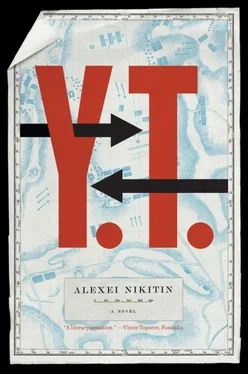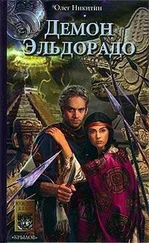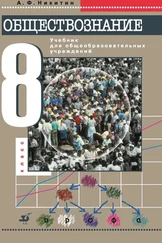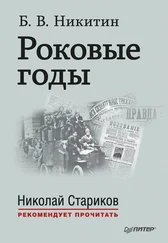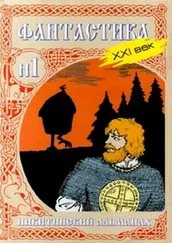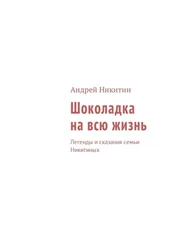I haven’t been back up Castle Hill since then. Probably for no good reason. The view from there is marvelous. Marvelous and very precise—no aberrations, no distortions. Now, twenty years on, I can see that the hill was right and I was wrong. But what can you take from me now? I’m just a peddler of fizzy drinks. Who cares if I perish in a red-and-white peddler’s tent in the cold of winter or whether in that same tent I sweat the caustic sweat of labor in the summer. I’m now a peddler of fizzy drinks, and my affairs no longer take me to Castle Hill. But back then… Then, Istemi was behind me, and we were equals. Not in everything, but in some ways we were. And Castle Hill knew it.
Perhaps it’s only because of Istemi that I managed to get out of the gloomy, grey-granite building on Volodymyr Street in a way that didn’t cast a dark shadow over the rest of my life. It was Istemi who brought Sinevusov to heel, Istemi who refused to collaborate, Istemi whom they set free. Noses pressed against the part-open door, they observed him going out on to Volodymyr Street and standing there, renewing his acquaintance with the May sunshine and deciding which way to go—left towards Opera Street or right towards the park on Volodymyr Hill. They observed his first steps as a free man, and the oil mingled with the venom and trickled down their cheeks and from their chins. And when he reached Malopidvalna Street and disappeared from view, they carefully drew their breath and wiped away the oil and venom. They let Istemi go, and along with Istemi I left, too.
In winter the university lecture halls were unbelievably cold. The windows are enormous—they take up an entire wall—and no radiator can compensate for the expansive spirit of the architects. That said, the radiators don’t exactly tax themselves—they are only vaguely warm. But, when you think about it, had the architects actually done anything wrong? The buildings had been constructed to an excellent design. A design that won second place in a competition. The competition was held in Mexico. Or maybe it was Colombia. Either way, a country in the Caribbean—maybe even Cuba—had decided to build a university and organized a competition. The winner took everything, and the runner-up got Kiev. Because the powers that be in Kiev decided to take advantage of the competition to save themselves a bit of money. That was the national mentality coming through. They opted for a ready-made design and bought it for next to nothing. After all, Kiev is a well-known tropical city, which is why we have a fine time of it in winter, and summer’s not bad, either. When the time came to approve the budget, the air conditioning was dispensed with. With great big windows like those, reasoned the Ministry of Education steering committee, who needs air conditioning? This is no Cuba and no Mexico either, thank God! If it gets too warm, just open a window. Look how big they are.
Down below, the cracked base of a dried-up fountain was turning grey. We weren’t about to open the window, even though we had barred the door closed with a mop. Term was in full throttle, testing drawing to a close and exams just beginning. We had to do something while we could.
This was no Congress of Victors. Although there had been a victory of sorts—we had got out. Each of us had encountered freedom in the place prescribed in the manual—at the entrance, alongside the officer on duty. Or at the exit, rather. The interrogations were in the past. The hollow silence of the corridors and cells of the KGB prison had dissipated. And there had been a victory. But it had not turned us into victors.
Kanyuka was sitting by the window, looking out at the golden scene beyond without actually seeing it, occasionally drumming a nervous tattoo on the back of the next desk. Korostishevski was bobbing his leg up and down, attentively studying his old trainers. His lips were outthrust, and he was humming something indistinctly. They didn’t look at one another, didn’t see one another and didn’t want to. The war of the three majors was long over and in the past, and Kurochkin had got Aquileia. But it wasn’t the unconscionable capture of a small seaside town that distressed Korostishevski; it was Kanyuka’s perfidious aggression that he couldn’t forgive.
‘What’s his problem? I didn’t attack him. Can’t he see?’ said Kanyuka in loud indignation, turning first to me, then Kurochkin. ‘It wasn’t me. I was only doing as I was told. They said, “Do it,” and I did it. If you want we can start the game over again. Tell him, all of you, tell him it’s not too late to start over if he wants to. Can’t we?’
‘He’—Korostishevski, studying a crack he had noticed in the sole of one of his trainers—shook his head in disappointment and hummed a wordless tune.
‘It wasn’t me, make him understand,’ Kanyuka demanded of Kurochkin. ‘You were fighting him yourself.’
Kurochkin paced alongside the blackboard, from wall to window and back again. He didn’t say anything, but I knew Kurochkin was glad. Was there actually something to be glad about? But Kurochkin was glad. Although he didn’t show it as he paced, frowning, from window to wall and back again.
‘Let’s assume we can’t start over,’ replied Kurochkin at last. ‘And we won’t. You’re an adult, Vadik. You’ve reached your legal majority, so you have to take responsibility for your actions—or at least you should. They were only telling you what you should do, but you yourself decided.’
‘Me?’ Kanyuka jumped up and ran along the row of desks. ‘Ha! So it was me deciding, was it?’
I couldn’t stop myself saying, ‘Can’t the two of you sort this out between yourselves later on? We’re not here to negotiate a peace treaty or clarify who attacked whom and why. We’ve got to finish the term. And agree a separate exam schedule with the rector’s office. There’s not just one or two of us, but five—we’re almost a group. Or else we need to go on academic leave immediately. Right?’
Kanyuka looked out the window again. Korostishevski bobbed his leg. Kurochkin paced silently along the blackboard.
‘Whether or not we take our exams, or whether or not we can come to some agreement,’ came the voice of Mishka Reingarten, who was gazing at the wall, ‘what’s that compared with the diamond path of the Buddha? Against the practice of phowa ? And what value does life have before death anyway? We must learn how to transform our consciousness into a state of beatitude. At the moment of dying.’
‘What’s that mean—at the moment of dying?’ asked Korostishevski.
‘It means,’ said Kanyuka, who no one had asked, ‘pulling out your intestines and studying them. And if it doesn’t work the first time, you quickly put them back and start over again.’
‘Why don’t we discuss the business at hand?’ I said. They were beginning to annoy me. ‘Who’s going to see the rector?’
‘We can’t afford to lose this year,’ agreed Kanyuka gloomily. ‘Otherwise it’s the army.’
Kurochkin shrugged. ‘If it’s got to be the army, then so be it. We’ll fight. If not, then it’s exams. We’ll take them.’
‘In other words, we’ll take our exams. End of.’ Kanyuka wanted to have the last word. But on the last word—‘of’—his voice broke into an almighty squeak and he started coughing.
‘I’ll be back,’ I said. I pushed the mop aside and went out into the corridor. They might go on like that for a while yet. I decided to find out whether they would see us in the rector’s office. Either the rector, if he was in, or the assistant rector. But no one was there. This was very unusual during exams. It was hot and deserted. An infernal silence had fallen upon the entire floor around the rector’s office. A dry, withered silence that buzzed in my ears and ached in the back of my neck. There was only a secretary working at fever pitch. On the other side of the wall, in a furious and unhealthy frenzy, she was hammering away on the keys of a Yatran typewriter. I began reading the notices posted around the door, timetables, instructions, orders: ‘…allow students to take examinations on the condition that…’; ‘…do not allow in the event that…’ It was like a dream where suddenly you know what must happen next. I was alone in the corridor when the percussive Yatran came to a stop, and the silence grew deafening and unbearable. The secretary came out of the office, and, not paying me any attention, amid the old notices she pinned up yet another, a new one. At that very moment footsteps became audible from the far end of the corridor. I turned and looked. Slowly passing the doors to the lecture halls and displays of dusty book covers and the yellowed title pages of academic articles approached Natasha Belokrinitskaya. I don’t remember where the secretary went—I was waiting for Natasha—and only later did my eyes fall upon the short paragraph of text. It was an order from the rector regarding our expulsion.
Читать дальше
